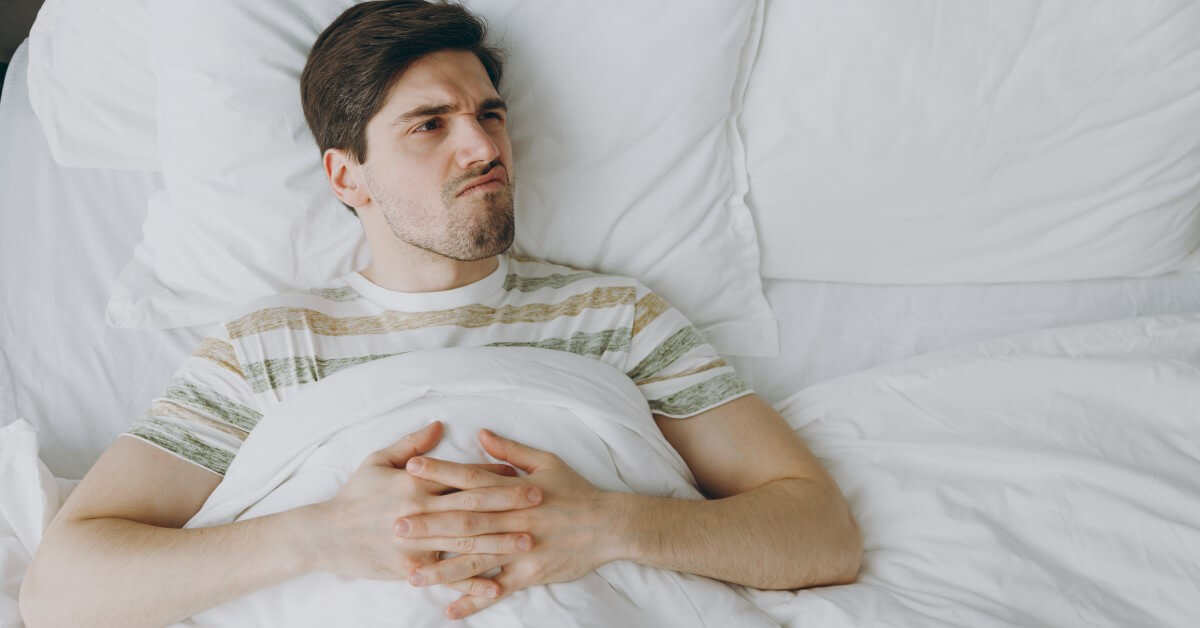
Overview
Stress, described as physical and emotional tension caused by various factors such as work, finances, or health problems, is a pervasive aspect of contemporary life.
Some degree of stress can have positive effects, such as keeping us alert and out of danger. However, excessive stress can negatively impact our health and overall quality of life.
One significant way stress can be harmful is by causing insomnia. This article outlines eight effective methods to improve sleep quality amidst stress.[1]
1) Engage in Regular Exercise
Regular physical exercise can reduce stress by triggering the production of endorphins and other neurotransmitters, contributing to a relaxed and calm state of mind.
Research shows that individuals who engage in regular exercise manage the emotional consequences of stress better than those who do not.[1] It’s crucial, however, to consult a healthcare professional before initiating any exercise regimen, particularly for individuals with pre-existing health conditions.
2) Establish a Consistent Sleep Pattern
When stressed, falling asleep can be daunting, potentially leading to irregular sleep patterns. Consistency is key in addressing this issue—maintain the same bedtime and wake time daily. This regulation helps establish a stable sleep rhythm, enhancing sleep quality.[2]
3) Create a Comfortable Sleeping Environment
An ideal sleep environment should facilitate relaxation. To achieve this, consider decorating your room in soothing colors, using blackout curtains, maintaining a bedroom temperature of around 70 degrees, minimizing noise, and decluttering the space.[3][4]
4) Incorporate Essential Oils
Lavender oil, for instance, has been recognized for its calming effect and can help induce sleep. Research in “Nursing in Critical Care” highlighted the benefits of lavender oil in improving sleep quality and reducing anxiety.[5]

5) Dedicate the Bedroom to Sleep
The bedroom should be associated with sleep to facilitate a mental link between the room and rest. If other activities like work or exercise are conducted in the bedroom, it may become associated with these actions instead. Such association is a principle of Pavlovian conditioning that dates back to the work of Russian physiologist Ivan Pavlov.[6]
6) Avoid Stimulants Before Sleep
Substances like caffeine in coffee, dark chocolate, green tea, soda, black tea, energy drinks, and some chewing gums can interfere with sleep when consumed close to bedtime. Research supports avoiding caffeine at least 6 hours before sleep.[7]
7) Cultivate a Bedtime Routine
Having a regular pre-sleep routine can prime the body for sleep. An example is having a hot bath, brushing your teeth, and saying goodnight to family members. This routine further conditions the brain to associate specific actions with sleep time, leading to quicker sleep onset.[8]
8) Practice Meditation
Meditation can help reduce stress and induce sleep. Even a short five-minute meditation session before bedtime can be beneficial. Combining meditation with aromatherapy can enhance this effect further.[9]
What’s the Takeaway?
Excessive and prolonged stress can hinder sleep quality and, if unaddressed, lead to more significant mental and physical health problems.
If sleep problems persist despite utilizing these strategies, seeking professional help from mental healthcare providers, medical doctors, or sleep specialists is advisable. Ensuring quality sleep is paramount for overall health and wellness.
References:
- Childs, E., & de Wit, H. (2014). Regular exercise is associated with emotional resilience to acute stress in healthy adults. Frontiers in Physiology, 5. https://www.ncbi.nlm.nih.gov/pmc/articles/PMC4013452/
- Kalmbach, D. A., Anderson, J. R., & Drake, C. L. (2018). The impact of stress on sleep: Pathogenic sleep reactivity as a vulnerability to insomnia and circadian disorders. Journal of Sleep Research, 27(6), e12710. https://www.ncbi.nlm.nih.gov/pmc/articles/PMC7045300/
- Hume, K., Brink, M., & Basner, M. (2012). Effects of environmental noise on sleep. Noise and Health, 14(61), 297. https://pubmed.ncbi.nlm.nih.gov/23257581/
- Harding, E. C., Franks, N. P., & Wisden, W. (2019). The Temperature Dependence of Sleep. Frontiers in Neuroscience, 13. https://www.ncbi.nlm.nih.gov/pmc/articles/PMC6491889/
- Karadag, E., Samancioglu, S., Ozden, D., & Bakir, E. (2015). Effects of aromatherapy on sleep quality and anxiety of patients. Nursing in Critical Care, 22(2), 105–112. https://pubmed.ncbi.nlm.nih.gov/26211735/
- Yazdi, Z., Loukzadeh, Z., Moghaddam, P., & Jalilolghadr, S. (2016). Sleep Hygiene Practices and Their Relation to Sleep Quality in Medical Students of Qazvin University of Medical Sciences. Journal of Caring Sciences, 5(2), 153–160. https://www.ncbi.nlm.nih.gov/pmc/articles/PMC4923839/#R19
- Drake, C., Roehrs, T., Shambroom, J., & Roth, T. (2013). Caffeine Effects on Sleep Taken 0, 3, or 6 Hours before Going to Bed. Journal of Clinical Sleep Medicine, 09(11), 1195–1200. https://www.ncbi.nlm.nih.gov/pmc/articles/PMC3805807/
- Markwald, R. R., Iftikhar, I., & Youngstedt, S. D. (2018). BEHAVIORAL STRATEGIES, INCLUDING EXERCISE, FOR ADDRESSING INSOMNIA. ACSM’S Health & Fitness Journal, 22(2), 23–29. https://www.ncbi.nlm.nih.gov/pmc/articles/PMC6715137/
- Goyal, M., Singh, S., Sibinga, E. M. S., Gould, N. F., Rowland-Seymour, A., Sharma, R., Berger, Z., Sleicher, D., Maron, D. D., Shihab, H. M., Ranasinghe, P. D., Linn, S., Saha, S., Bass, E. B., & Haythornthwaite, J.

